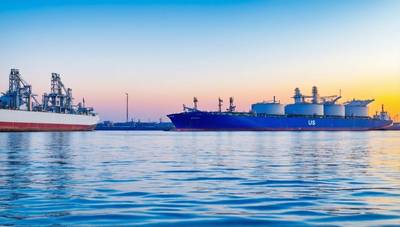Jain and Boersma: US LNG exporters may run into a methane problem in Europe
By Tim Boersma and Gautam Jain
New methane regulations may be a hindrance to the Trump administration's goal of "energy dominance", which is the United States' largest export market.
The EU's President Ursula von der Leyen indicated that they may be willing import more U.S. LNG, in part to lower the EU's trade deficit. However, the process of making this happen can become complicated.
Many utilities in the EU hesitate to sign long-term LNG agreements due to the uncertainty surrounding the future gas demand in the region and the expected price impact from the product's growth in supply in the next few years. The rapidly deteriorating relations between Washington and the EU are not helping either.
The EU Methane Regulation, which was adopted in 2024, is another complicating factor. This framework set out rules and obligations that companies operating in Europe must follow to monitor, report, and verify methane emission levels, as well as prevent and address methane leaks.
This framework was not created in a vacuum. Globally, a major effort is underway to better monitor and measure methane emission associated with fossil fuels production and transportation, as demonstrated by forums like the Oil and Gas Methane Partnership and the Oil and Gas Decarbonization Charter.
Previously, the U.S. had been a part of this initiative. Through the Inflation Reduction Act, the Biden Administration implemented a number of measures including a fee on methane to curb so-called fugitive methane emissions.
The Trump administration has slowed down the U.S. efforts.
PESSIMISTIC SCENARIA
The optimistic view for 2025 was that the framework set up by the previous administration would be changed to allow U.S. exporters of LNG to benefit from a looser regulatory environment in the U.S., while still competing on the global market with a product that is supposedly superior.
Early indications suggest a pessimistic future.
The U.S. Senate repealed this fee in February. However, it is difficult to eliminate these fees completely due to the IRA's other provisions.
In one of his executive order, President Trump urged the Environmental Protection Agency to challenge, and possibly rescind, the Agency's endangerment findings from 2009, which concluded six types of greenhouse gases emissions pose a danger to the public health and welfare.
If the EPA tries to rescind the finding, it may be faced with legal and scientific obstacles. The EPA's authority to regulate GHGs has been enshrined in the Clean Air Act via the IRA. Even the mere mention of a major change is enough to create significant uncertainty for U.S. energy companies, particularly LNG exporters that still have to adhere with stricter European environmental regulations.
PATH FORWARD
What's next for U.S. Liquefied Natural Gas? The global demand for natural gases is strong and will likely remain so for many decades. U.S. companies that produce LNG, who tend to be long-term oriented due to the length of time it takes to complete their projects, will likely look beyond Trump's administration to adhere to European environmental standards in order to increase their market share.
It is noteworthy that American companies are among the few who have constructively engaged with Brussels in order to find a practical path to implement current methane regulations.
The U.S. gas supply chain is extremely complex and the technologies that can detect and reduce GHG emissions are not perfect. Improving the environmental footprint for U.S. LNG is a long-term project.
It is likely that the industry will have to work closely with legislators and regulators to move forward, perhaps in collaboration.
The LNG industry in the U.S. could pressure the Trump Administration to maintain the IRA tax credits for carbon storage and capture (CCUS), which Secretary of Energy Chris Wright appears to support as do many oil companies. Natural gas producers and shipping companies could also make clear that rescinding the endangerment determination would be disruptive and counterproductive.
In a scenario that is less positive, U.S. officials could follow the lead of their Qatari counterparts, who, in December, told the European Commission the LNG exports from the country would cease if the state-owned firm was fined by the EU's Corporate Sustainability Directive. White House officials could also oppose the EU Methane Regulation, or include it in larger tariff negotiations.
U.S. LNG exporters and EU legislators have a keen interest in preventing an all-out showdown. However, it is unclear how they plan to navigate this new energy landscape, where the U.S., at least from a political perspective, has become increasingly distant from the EU.
(source: Reuters)












